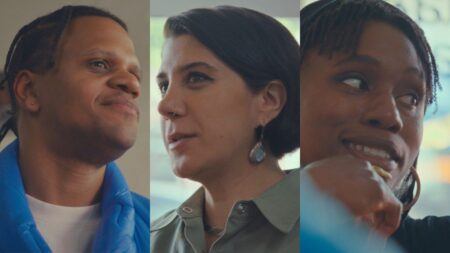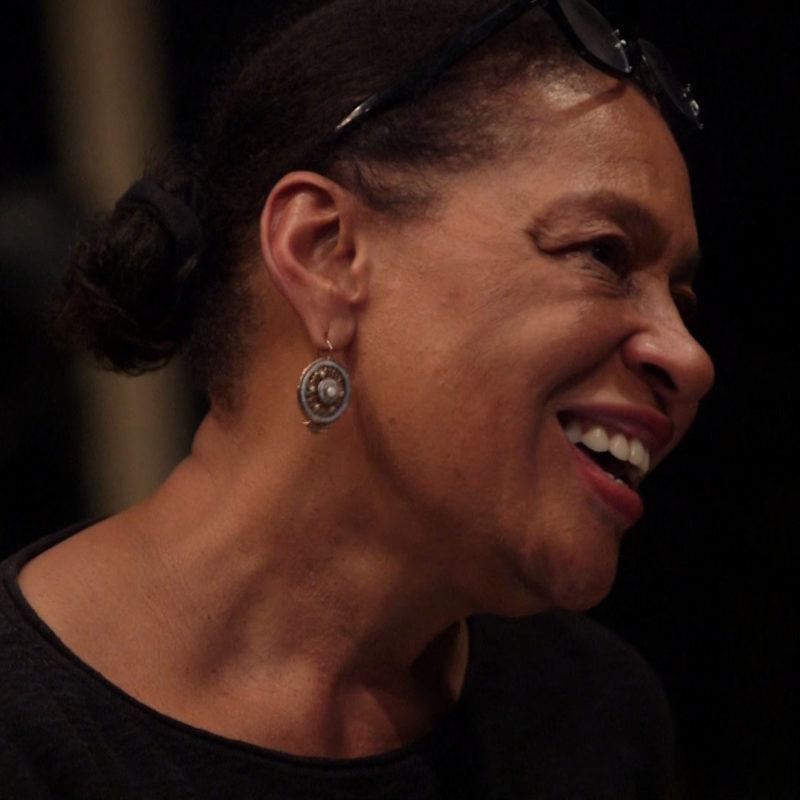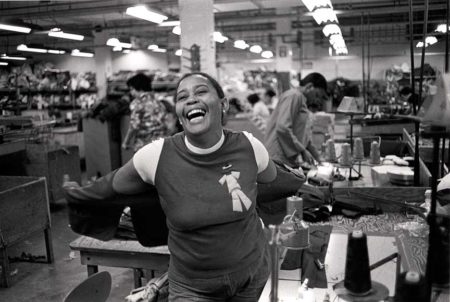Continue playing
(Time remaining: )
Play from beginning
Continue playing "{{ controller.videos[controller.getVideo(controller.currentVideo)].segmentParentTitle}}"
{{controller.videos[controller.getVideo(controller.currentVideo)].title}} has ended.
"The Kitchen Table Series"Carrie Mae Weems
Filmed in her Syracuse studio, artist Carrie Mae Weems discusses the impetus for her work The Kitchen Table Series (1990), a photographic investigation of a single domestic space in which the artist staged scenes of “the battle around the family” between women and men, friends and lovers, parents and children.
Credits
Producer: Wesley Miller & Nick Ravich. Interview: Catherine Tatge. Camera: Joel Shapiro. Sound: Roger Phenix. Editor: Joaquin Perez. Artwork Courtesy: Jack Shainman Gallery & Carrie Mae Weems. Special Thanks: Elvira Dyangani Ose. Video: © 2011, Art21, Inc. All rights reserved.
Closed captionsAvailable in English, German, Romanian, Italian, Japanese, Korean, Chinese, Italian
Through the Art21 Translation Project, multilingual audiences from around the globe can contribute translations, making Art21 films more accessible worldwide. Translate this video now.
Interested in showing this film in an exhibition or public screening? To license this video please visit Licensing & Reproduction.
Carrie Mae Weems’s vibrant explorations of photography, video, and verse breathe new life into traditional narrative forms like social documentary, tableaux, self-portrait, and oral history. Eliciting epic contexts from individually framed moments, Weems debunks racist and sexist labels, examines the relationship between power and aesthetics, and uses personal biography to articulate broader truths. Whether adapting or appropriating archival images, restaging recognizable photographs, or creating altogether new scenes, she traces an essential indirect history of the depiction of African Americans for more than a century.
Artwork Survey: 1980s
“…I had been really thinking a lot about what it meant to develop your own voice.”
Carrie Mae Weems
Photography
Graciela Iturbide
Gabriel Orozco



